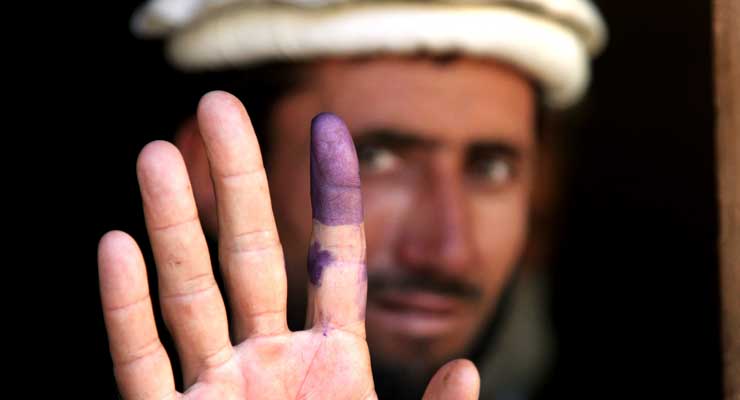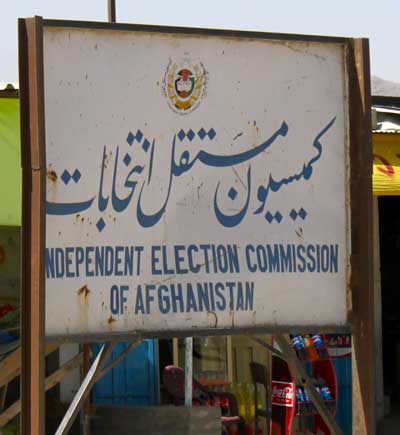
Officials in Afghanistan have set a preliminary date for much anticipated parliamentary and local elections after numerous delays. The date of voting is now set for October 20, 2018 and could be a big step forward in a war-torn country that has struggled to form a democratic society in the 17 years since the fall of the authoritarian Taliban regime in 2001. America’s grand investments in Afghan security and democracy are surely at stake.
“Afghan security forces have assured us they will carry out operations in insecure areas not in government control to ensure security for people in the voter registration and voting stages of the elections,” the country’s Independent Election Commission chief, Abdul Badi Sayad said regarding the upcoming elections.
Afghanistan’s election history has been a troublesome one since the fall of the Taliban in 2001. Widespread violence and fraud plagued the first Presidential election in 2004, when Hamid Karzai won the first election since the fall of the totalitarian Taliban regime. Six other candidates competed against Karzai in the country’s first Presidential election since the 2001 invasion by American and allied military forces. President Karzai won the controversial vote with 56.37 percent of the vote.

“Setting a firm date for elections is a notably positive and important development in the work of the IEC and will allow progress from the formal planning stages to implementation,” Tadamichi Yamamoto who heads the UN assistance mission in Afghanistan recently said.
Throughout the first Presidential election in 2004, there were numerous instances of violence in Afghanistan that did not discriminate between foreigners and native Afghans. Just as President Karzai’s election was declared official in October of 2004, three United Nation workers were kidnapped by the terror group Jaish-e-Muslimeen (aka Army of Muslims), one of many militant groups that sprung up following the collapse of the Taliban.
The Afghanistan Presidential term is a five-year term where the President can only serve two terms. President Hamid Karzai’s successor, Ashraf Ghani won the 2014 Presidential election with 56.44 percent of the vote. Such a transfer of power had the potential of progress. As pointed out by the U.S Institute of Peace, the 2014 Presidential election was the first election where a potential transfer of power would have taken place but was not without its own controversy and violence.
That election was also marred with violence and questions about the integrity of the vote. The primary challenger to the Karzai-supported Ghani was Abdullah Abdullah whose resounding victory in the first round of voting was overturned in a questionable second round. Only direct negotiations between the two candidates, resulting in a national unity government, resolved that crisis.
Afghanistan’s government tries voting again
It now seems, the same election violence which plagued the first election in 2004, fed by growing concerns that violence will continue into the summer, will subsequently threaten the planned October 2018 elections. The fear has been justified by a surge in violence this year ahead of the spring fighting season, after the end of winter opens up communication and transportation across the country.
In the first months of 2018, Afghanistan has seen a surge in violence throughout the country, often focused in the capital city of Kabul. In January, there was a suicide ambulance bomb that killed 100 people in Kabul. The ambulance attack coincided with numerous attacks across the country including another attack in Kabul which killed 20 Americans when a hotel was attacked.
Complicating the prospects for free and fair elections, after 17 years of American occupation, the insurgency is now split largely into the Taliban and ISIS, a group that first grew in the violence of the American war in Iraq. At the same times, American and Afghan governments have always claimed ISIS and particularly the Taliban and have been getting refuge among sympathetic populations of fellow Pashtuns neighboring Pakistan.
Concluding, it is a positive step in the right direction that Afghanistan is progressing toward a new vote, and much is at stake. The candidates must remember the tremendously high sacrifices that the Afghan security services and international coalition partners have paid for in blood to help them get to this point. Their conduct during the elections is the key to moving toward the democracy the Afghan people deserve.
Leave a Reply